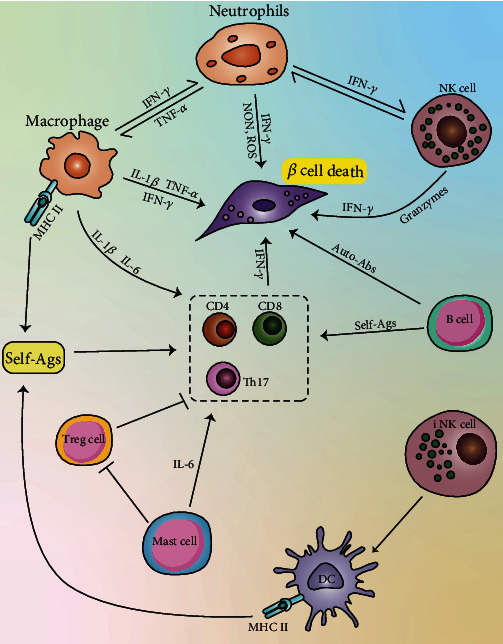Figure 1.

The role of innate and adaptive immunity systems and induction in T1DM patients. The initiation T1D takes place in the pancreas, when dendritic cells (DCs) and macrophages uptake and present β-cell antigens to T-cells to activate CD4+ and CD8+ T-cells. Then, activated CD4+ and CD8+ T-cells lead to the damage of β-cells. At the same time, DCs, macrophages, neutrophils, and NK cells as well as damaged β-cells can produce a large number of proinflammatory cytokines such as TNF-α and IFN-γ, which can directly contribute to β-cells' death. And these immune cells interact with each other to enhance their activation state. B-cells present β-cell antigens to diabetogenic T-cells and release autoantibodies to damage β-cells. iNKT cells can promote the recruitment of DCs. Mast cells facilitate the differentiation of Th17 by producing IL-6, and this effect can be inhibited by Tregs. The crosstalk between innate and adaptive immune cells contributes to the progression or prevention (not shown) of T1D.
